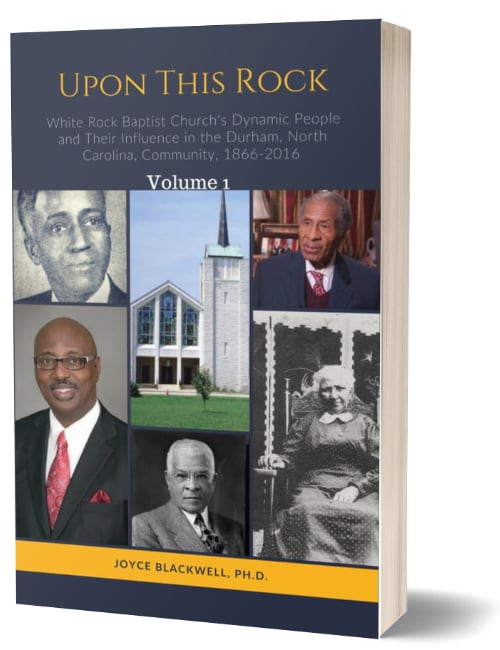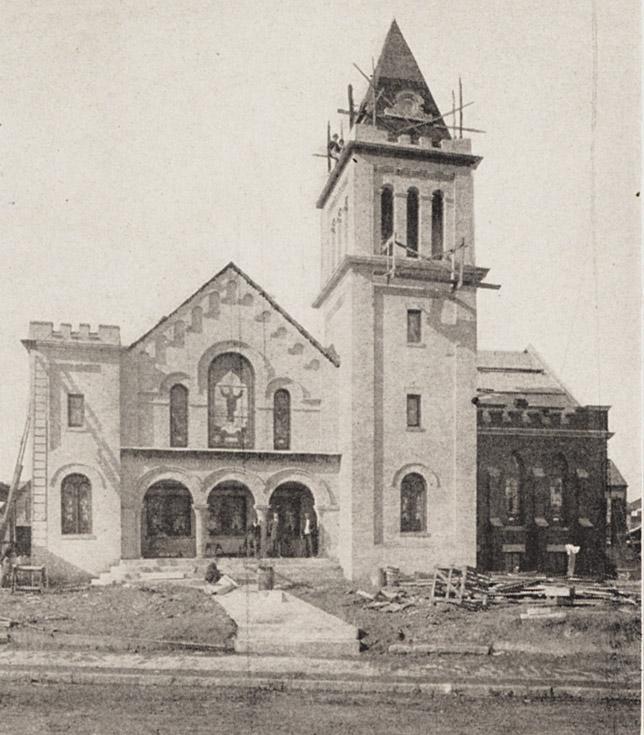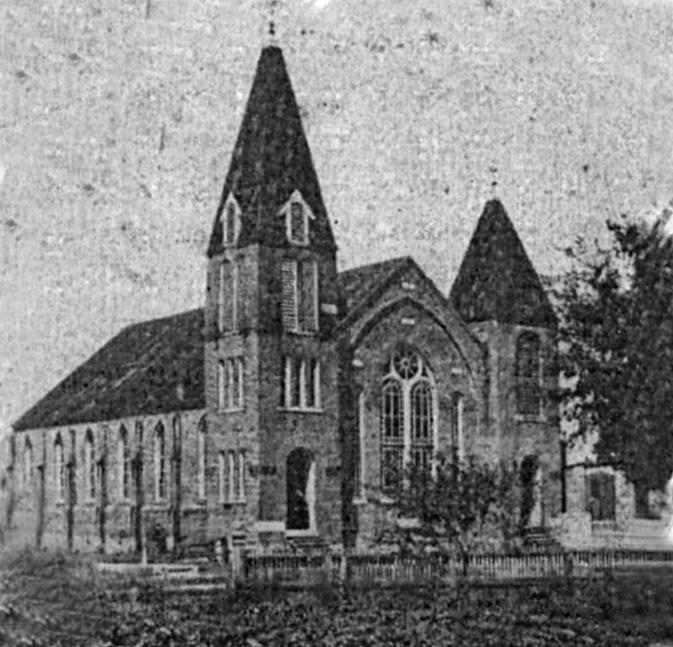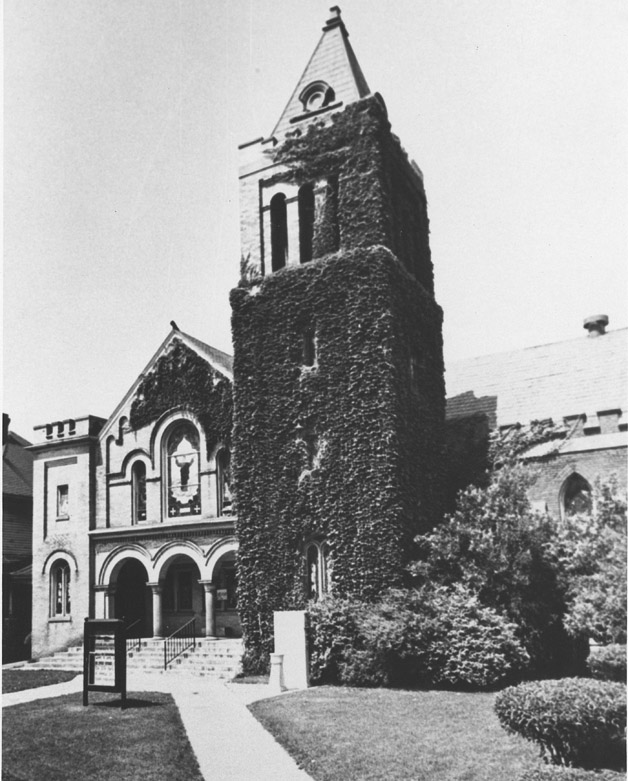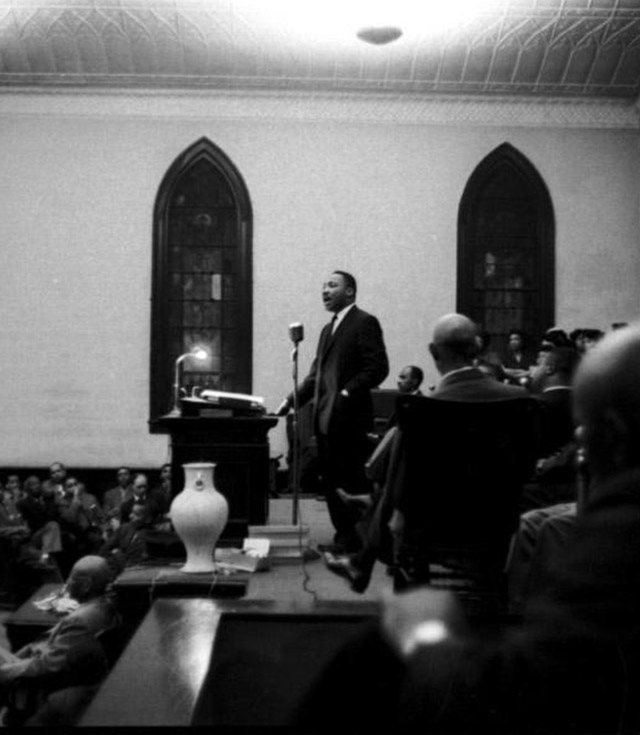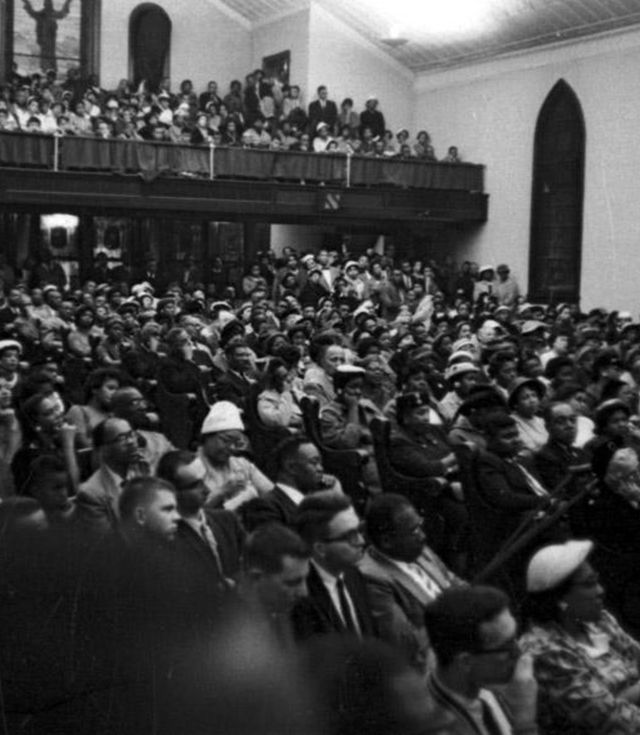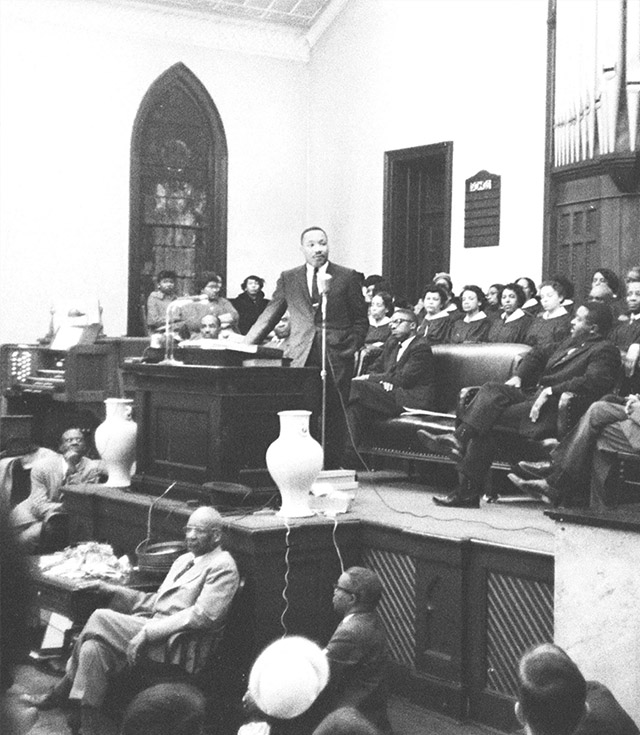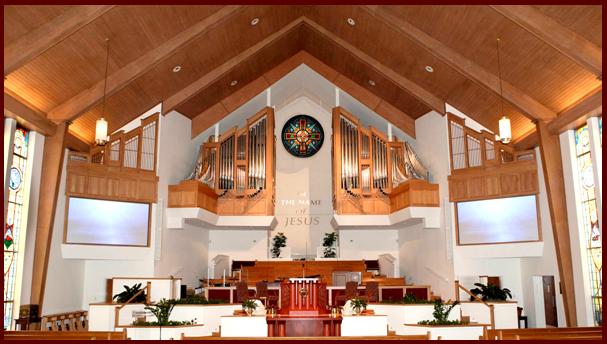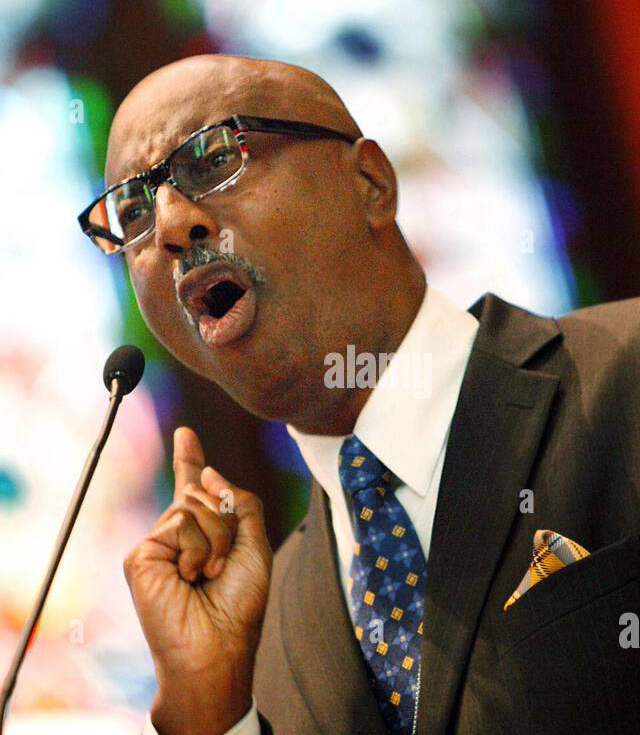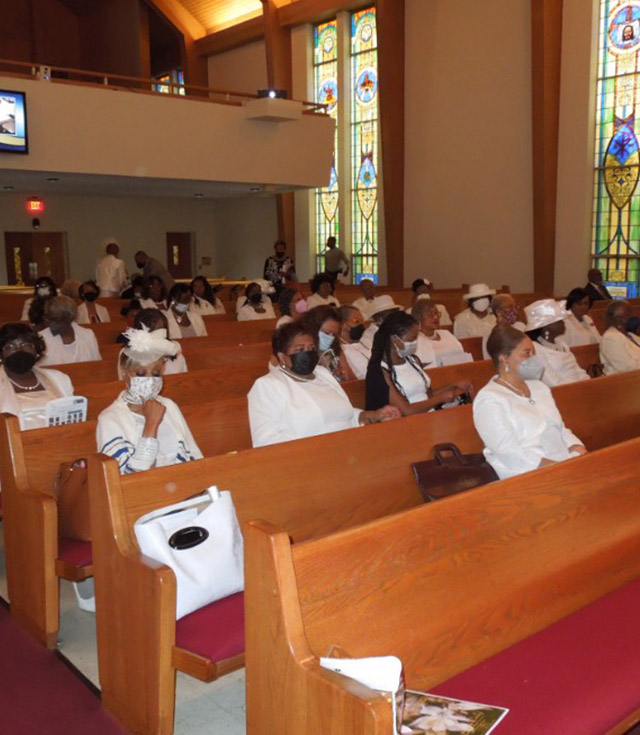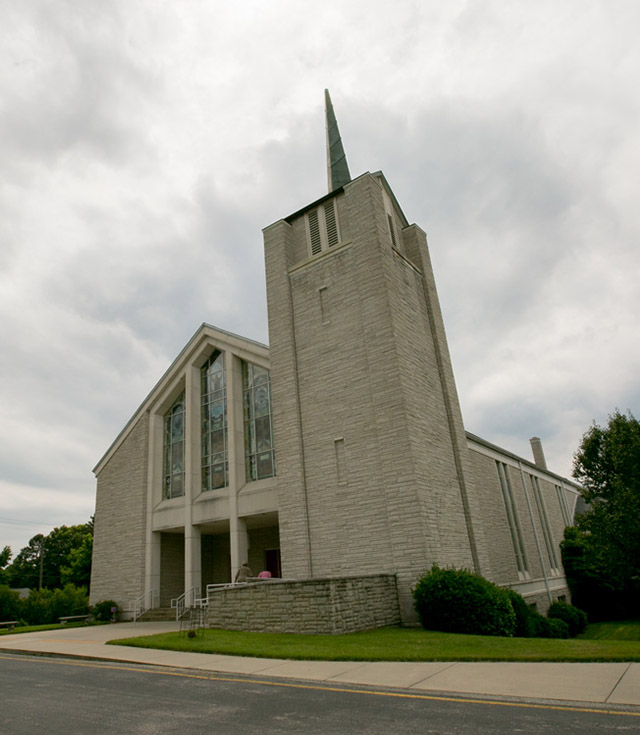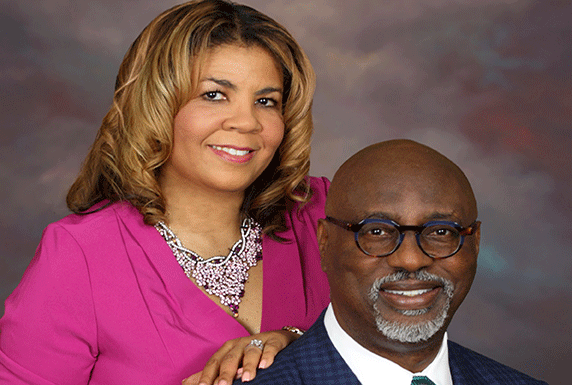Our History
A Religious and Historical Perspective
White Rock Baptist Church
When recently freed slaves Margaret Faucette, Reverend Zuck Horton, Reverend Samuel “Daddy” Hunt, Melissa Lee, and Gos Lee organized prayer meetings beneath brush arbors (right photo) and in their crowded living quarters, they had no clue that their actions would eventually lead to an organized, structured house of worship. The church, inspired through prayer and built primarily around the Word of God, was made significant through its members who interpreted their Christian faith by serving the African American community’s needs. White Rock Baptist Church—formerly known as First Baptist Church and then Colored Missionary Baptist Church—was organized in October 1866 and served as a context in which members, like Faucette, Minerva Womack, Tempie Whitted, Dr. Aaron Moore, Dr. Charles Spaulding, Susie Norfleet, Reverend Augustus Shepard and countless other Blacks, made plans to rebuild their lives truly as free men and women while they continued to be obedient to Jesus Christ. As a consequence of their work in Durham’s first African American church, a unique culture and community developed among Blacks.
As a Christian people, White Rock’s pastors and members were not concerned just about their own lives but also the lives of others, especially in the African American community. From the time that the church was organized until now, many of its members have not only joined with countless others to continue their work in church ministries but also to engage in building a strong Black community. They have used, and continue to use, their God-given talents to do so.
White Rock’s members, for example, took the lead in developing grade schools for African American students in rural areas of the State. Dr. Aaron Moore, Durham’s first Black physician, and White Rock’s long-time superintendent of Sunday School, was so instrumental in improving educational opportunities for African Americans in the State that he was given the title, “Father of the Rural School Movement for Negroes in North Carolina.” Today, Minnie Forte-Brown holds similar stature in the community as a long-time member of the Durham Public Schools Board of Education who made such a difference in education for young people during her tenure that a building was recently named in her honor. Moore and Forte-Brown are excellent examples of White Rock church members who allowed God to use their talents to help with building His Kingdom.
Even after White Rock’s members became educated and amassed a considerable amount of wealth, they continued to demonstrate their Christian faith by reaching back and helping their less fortunate brothers and sisters. The insurance companies, banks, stores, pharmacies, hospitals, haberdasheries, mills, schools, colleges, clubs, associations, organizations, libraries, clothing stores, theaters, and mutual aid societies that they used their skills, talents and connections with the White community to build were for the entire African American community. Their work in the various ministries and in the community, cloaked in Christian love, gave poorer Blacks hope at a time when they needed it most. Moreover, those who built these pillars of Durham’s Black community also opened doors for their African American brothers and sisters like Dr. Edward Clemons (dentist), Wanda Page (Durham’s City Manager), Keith Chadwell (City of Durham’s Deputy City Manager), Camilla Felton (North Carolina Central University Research Operations Manager), Deacon/Trustee Derek Hunter (Assistant Attorney General, NC Department of Justice), and Deaconess Beverly Reese (a guru in the local real estate industry), to walk through and also use their talents both in the church and in the community. And they are doing so.
Many in White Rock also have used, and continue to use, their ministries to impart knowledge to African Americans about Jesus Christ and His goodness. These Christians have felt, and continue to feel, that it was and is equally important that their brothers and sisters understand that God has a purpose for their lives. These men and women have served, and continue to serve, as examples, by using their God-given skills and talents to fulfill their purpose or destiny in life. They are often guided by Romans 12: 6-8 (ESV): “Having gifts that differ according to the grace given to us, let us use them: if prophecy, in proportion to our faith; of service, in our serving; the one who teaches, in his teaching; the one who contributes, in generosity; the one who leads, with zeal; the one who does acts of mercy, with cheerfulness.” This Scripture definitely guided former members like James Rufus Evans, Deaconess Mary Hester Smith and Annie Daye Shepard as well as current members like Deacon John Lucas, Deaconess Trannie Meekins, Dr. Brenda F. Allen, Rev. Regina Mitchell, Rev. Dr. Irene Perry, Minnie Forte-Brown, Minister Christopher Norwood, Deacon Robert Hartsfield, and countless others.
The aforementioned men and women and countless others were obedient as they fulfilled God’s purpose for their lives. In the end, not only were they, or are they, blessed but so are White Rock Baptist Church and people in the community. Faucette and many others who followed her had emerged from slavery, often homeless and in poverty with no transferable skills for the growing industrial economy. Yet, less than a generation later, these same men and women lived in a self-contained African-American community with many ducational, political, economic, social and religious opportunities. Today, White Rock’s members have truly been blessed. Look at how God works!
There is a valuable lesson to be learned from this short story about the historic White Rock Baptist Church and its members. For 155 years, they have believed that they must use their God-given talents to perform God’s work—in church as well as in the community, which includes their families.

